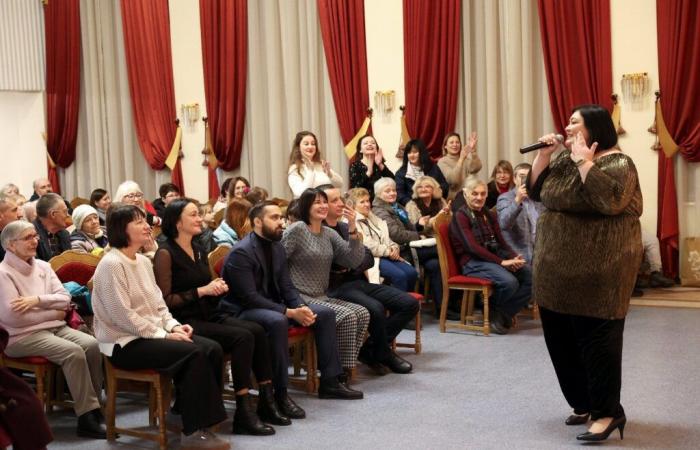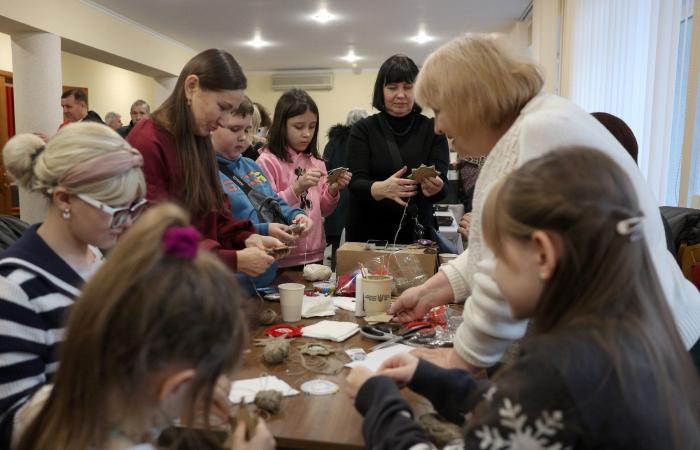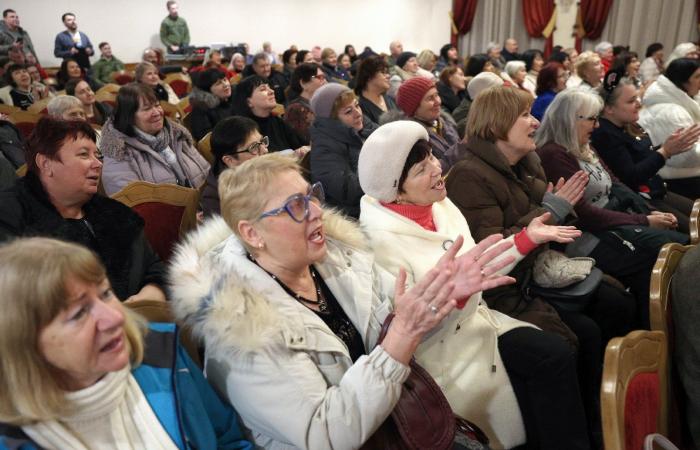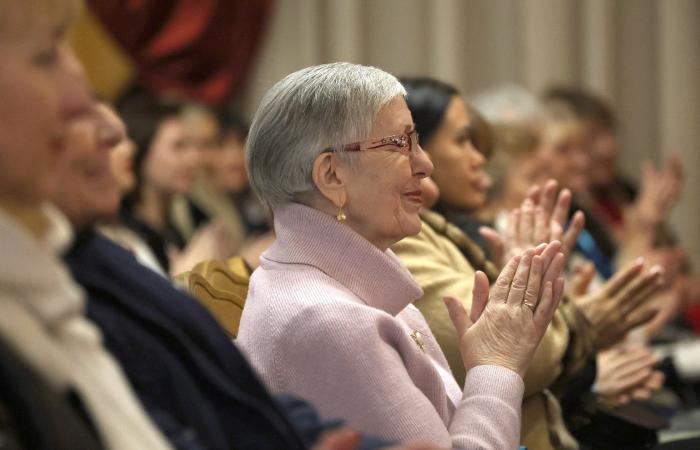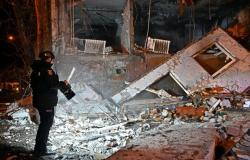The last time AFP met Anna Holoubtsova, in October 2022, she was standing in front of her neighbor's burning house, destroyed by a strike.
At the time, this city in eastern Ukraine was still under Ukrainian control. It would finally fall in May 2023, at the cost of one of the bloodiest and most destructive battles of the Russian invasion launched in February 2022.
Anna Holoubtsova, brunette in a sparkling t-shirt, is now more than 500 kilometers as the crow flies from her hometown. But being surrounded by her former neighbors is a way of deceiving geographical reality – and fuels her dreams of return.
“Maybe I’m a dreamer,” she told AFP. “But I say, and I will continue to say, that my family will be one of the first to come back and rebuild Bakhmout.”
This ambition seems more and more unattainable.
The Ukrainian army is in difficulty on the Eastern Front, where it loses several villages almost every week.
Russia, whose army is much larger and better armed, intends to conquer as much territory as possible before the return to the White House in January of the unpredictable Donald Trump.
The Republican, whose country is a major backer of Ukraine, promised a quick end to the war. kyiv fears that this could mean ceding the approximately 20% of its territory occupied by Moscow's forces.
For the Bakhmout diaspora, this would close the door to a return.
So, for the time of a Christmas concert, the exiles bring their city back to life, from a distance, with songs and their memories.
The event is organized by a humanitarian center and the Bakhmout town hall in exile. The city it administered has almost disappeared under the bombs, but some of its inhabitants are still there, scattered throughout the country.
Some wait in single file to drink tea and nibble some biscuits, while children prepare Christmas decorations.
When the concert begins, Anna Holoubtsova's voice rises and some spectators stand up, waving their arms to the rhythm of the music.
“It changes our minds,” explains Natalia Zyzyaïeva, 63 years old. “It helps us hold on, even just a little.”
Among the hundred people present, it is difficult to find an exile who does not have a tragic personal story to tell.
One of Natalia Zyzyayeva's neighbors was killed on her way to her chicken coop.
Another was buried in the vegetable garden.
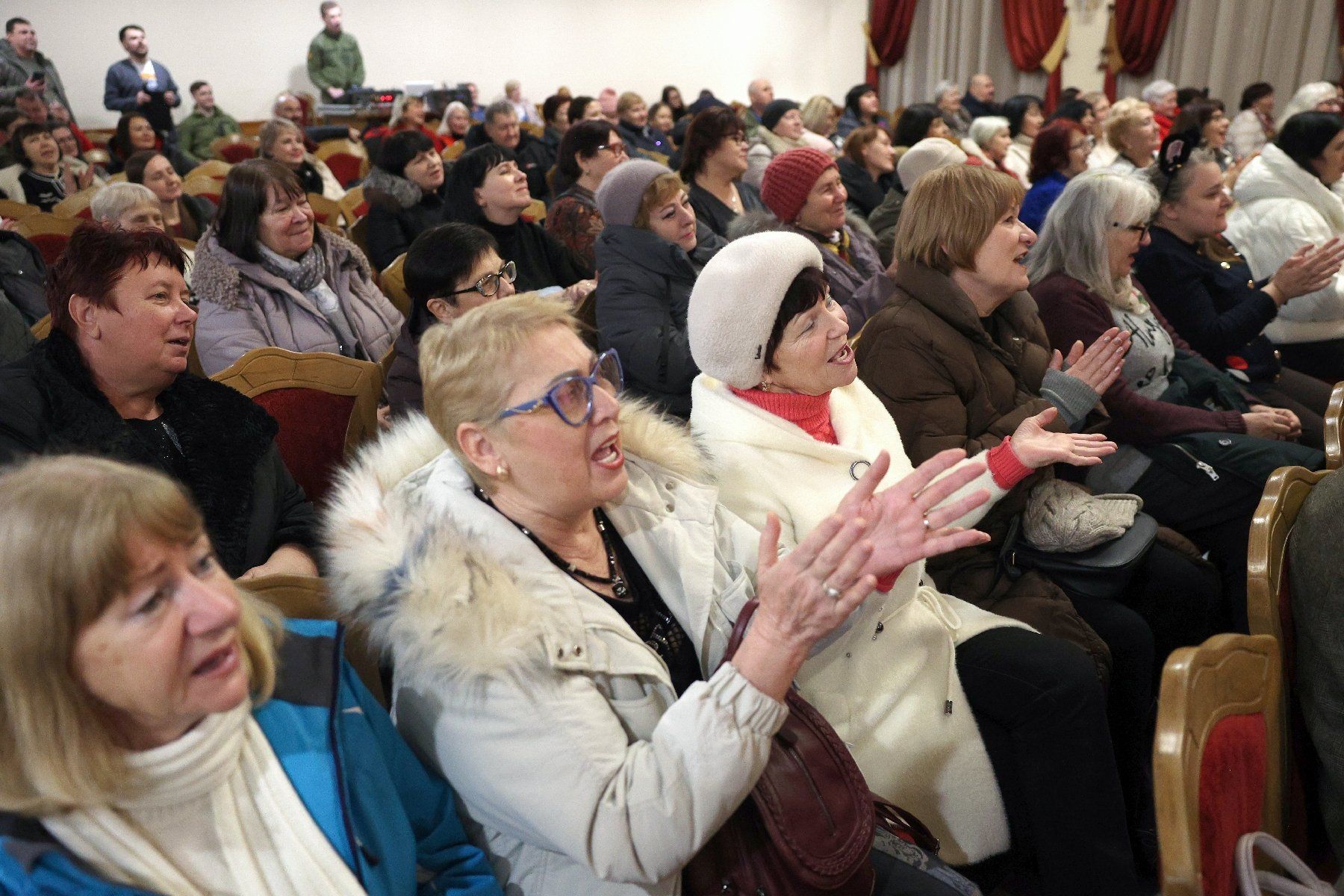
Natalia Zyzyaïeva tries to adapt to life in the capital, and its prices. She can only rent a small studio with her daughter.
“We don't make any plans for the future. We lived another day? Praise God,” she says to explain the way she sees life.
Unlike other of her fellow citizens, Natalia does not cling to the idea of returning to her city. “To where? We have nowhere to return. We no longer have a home.”
Satellite images of the town, which once had a population of 70,000, show ruined buildings and land charred by fighting.
“Everything has been destroyed, we can’t even think of a return,” said Olena Rudyk, 65.
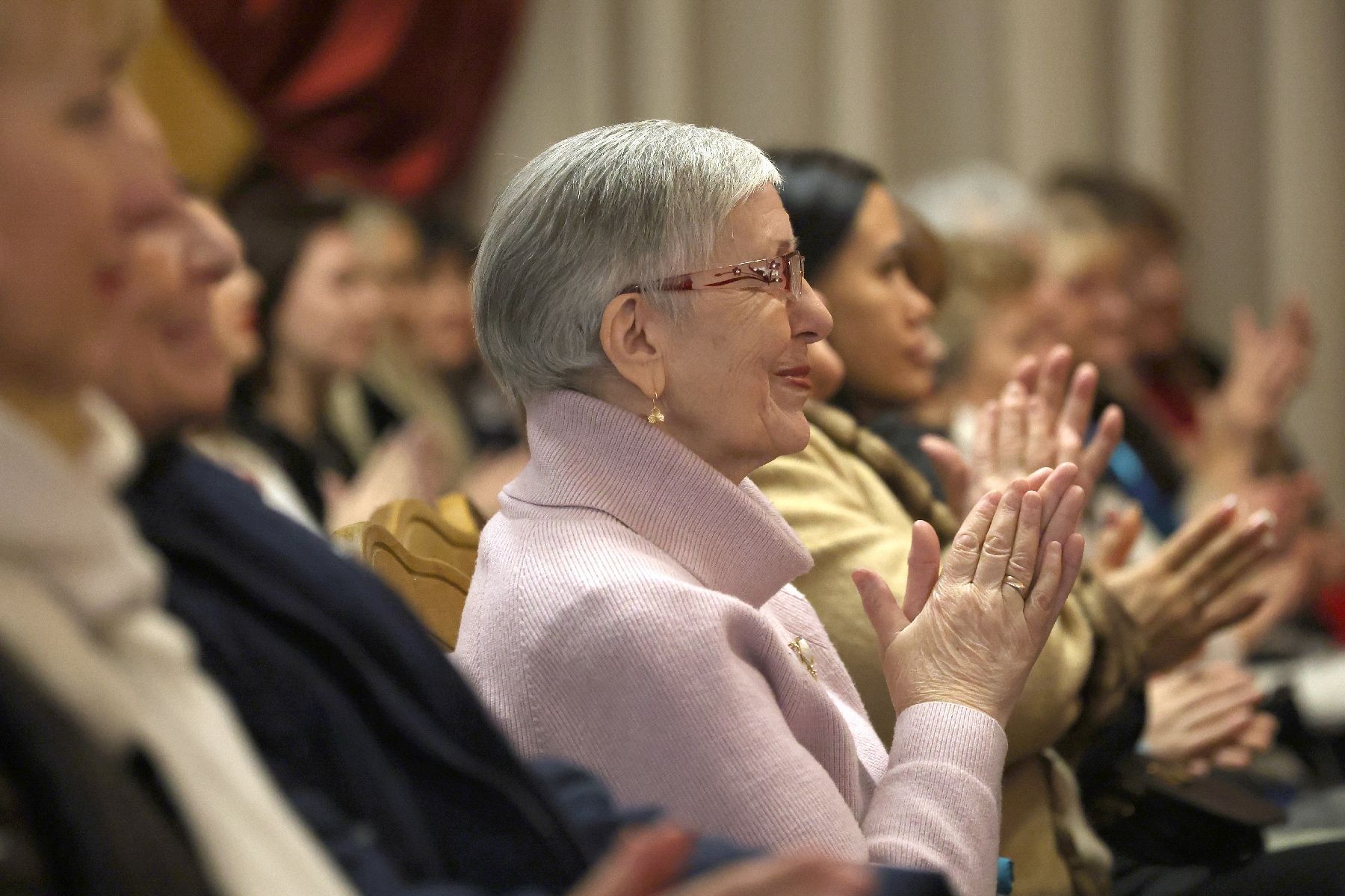
The name Bakhmout, for its exiles, evokes the city where they grew up, grew old, lived. For the rest of the world, it is now a synonym for the violence of the Russian invasion.
Olena Rudyk, a retired musician, still prefers to talk about the sparkling wine that made Bakhmout famous, and its beloved parks.
“The whole city was covered with flower beds, roses. There were parks everywhere, the central promenade was magnificent,” she recalls.
After almost three years of war, more and more Ukrainians say they are open to the idea of giving up part of the occupied territories to obtain peace, according to polls.
But Anna Holoubtsova continues to imagine herself at home.
“Dreams are what push us to continue living,” she assures. “So please dream, hope, wait and it will all come true.”

